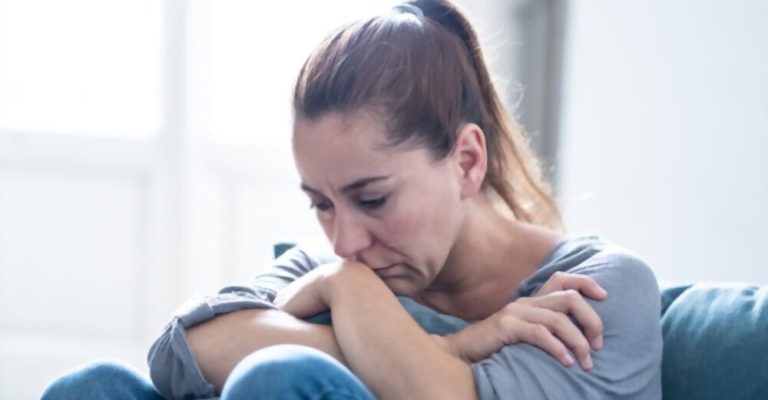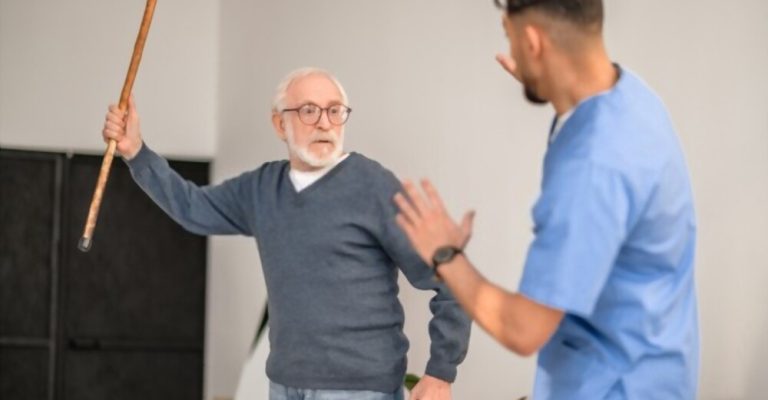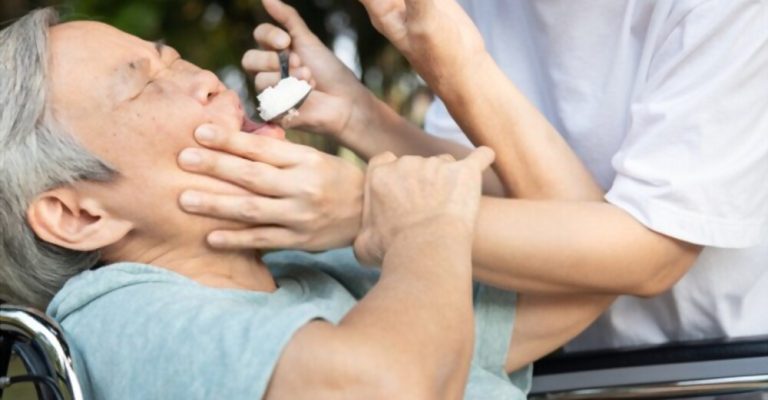
The effects of a stroke can be devastating, both physically and cognitively, and behaviorally. The disruption to daily life that strokes often bring is far-reaching, affecting every aspect of life, from activities at home to relationships with family and friends.
But just as one’s physical recovery isn’t easy or guaranteed, so does behavioral change after a stroke requires considerable work: people need to understand what behaviors are caused by which symptoms to know how best to manage them. In this blog post, we discuss the various types of changes in behavior that might arise after a stroke, their possible root causes, and some strategies for effectively managing them.
The term “personality” refers to an individual’s distinctive combination of emotional composition and behavioral tendencies. While we prefer to think of our personalities as static, they really tend to evolve as we do.
These alterations, however, may arise rapidly following a stroke. Patients with stroke may shock their family and friends by displaying qualities and behaviors never seen before. Thankfully, some methods may assist survivors in overcoming negative patterns of behavior. But what causes them to occur in the first place?
Modifications in the brain may precipitate sudden shifts in behavior following a stroke. Depending on the severity of the stroke, different quantities of brain tissue might be damaged. This suggests that alterations in the brain might bring about a sudden behavioral shift.
Stroke damage may be localized to a specific brain region, which may explain rapid shifts in behavior. For example, damage may lead to impulsive behavior since the frontal lobe helps regulate impulses.
Changes in behavior that develop gradually following a stroke may instead be the consequence of a shift in perspective or habits. Friends, work, and interests are all important sources of self-expression and individuality for many people. Behavioral alterations may result from changes in these variables following a stroke.

Remember that while each stroke is unique, so are the consequences felt by each individual. It’s possible that some survivors won’t show any signs of altered behavior, while others will.
After a stroke, some people’s loved ones exhibit unusual behavior, such as irrational ideas and acts. If you are concerned about a loved one’s conduct after a stroke, discussing your concerns with a medical professional is essential. However, you should not make rapid judgments.
A person’s unusual conduct is not diagnostic of dementia on its own. Think about what it would be like to be a survivor and to wake up one day to find that your skillset has been drastically altered. Alterations in cognition and perception brought on by a stroke may also contribute to out-of-character actions.
Mood swings are a common side effect of overcoming obstacles that might arise during stroke rehabilitation. Because your brain is still developing new connections, doing daily tasks may take more energy than usual. This may contribute to post-stroke exhaustion and its associated mood fluctuations.
Emotional lability, sometimes called pseudobulbar affect, may occur when there is an injury to the area of the brain responsible for regulating emotions. This may bring unrestrained laughter or tears, even though the scenario calls for neither. Both spontaneous healing and medication are effective in the treatment of this disease.
A person’s libido may either diminish or rise after a stroke. Hyposexuality, in which libido declines, is prevalent after a stroke. Possible causes include mental and physical changes as well as difficulties throughout the rehabilitation process. In addition, there is evidence that antidepressants, among other drugs, might reduce a person’s desire for sexual relations.
However, hypersexuality affects some stroke patients who previously had decreased libido. Only a few studies identified a link between hypersexuality and temporal lobe stroke.
After a stroke, several caretakers report seeing their loved one be more obstinate than usual. The issue the survivor is unwilling to budge on may provide clues as to why they are acting this way. Do they continue to work alone despite the increased difficulty? As long as they participate in safe activities, this tenacity may aid healing by stimulating the brain and encouraging progress.
When a stroke survivor acts defiantly in the face of the after-effects of their illness and refuses to accept help, this might be a symptom of anosognosia or a lack of awareness. A person with this disorder refuses to accept the reality of their impairment.
It’s crucial to understand that people with anosognosia aren’t deliberately refusing to get help. Brain abnormalities are responsible for anosognosia because they hinder a person’s capacity for self-awareness.
The experience of an absence of mind and forgetting is not uncommon after a stroke, significantly if the stroke has affected brain regions involved in memory and cognitive functions. Memory impairment is a frequent consequence of a stroke, and it can manifest in various ways, including difficulty remembering recent events, struggling with short-term memory, and experiencing gaps in memory or “absent-mindedness.”
When the brain sustains damage from a stroke, it can disrupt the normal functioning of memory-related structures, such as the hippocampus and other interconnected areas. This disruption can lead to problems with encoding new memories and retrieving stored information, resulting in memory deficits. As a result, the individual may find it challenging to recall recent conversations, remember appointments or events, or retain new information.
In addition to memory impairments, cognitive deficits resulting from a stroke, such as difficulties with attention, concentration, and multitasking, can contribute to the feeling of absent-mindedness.
The individual may struggle to focus and maintain attention, making it harder to retain and recall information accurately. They may also experience difficulties organizing thoughts and activities, leading to increased forgetfulness and a sense of being scattered or mentally disorganized.
It’s important to note that the severity and specific nature of memory and cognitive impairments can vary depending on the location and extent of the stroke. For example, some individuals may experience mild memory lapses, while others may have more profound memory deficits that significantly impact their daily functioning.
The impact of a stroke on the brain can disrupt the delicate balance of neurotransmitters and affect various brain regions involved in mood regulation. This neurochemical imbalance, combined with the emotional and physical changes resulting from the stroke, can contribute to depression.
The emotional aftermath of a stroke can be overwhelming. Individuals may experience a sense of loss, grief, or frustration as they confront the changes in their physical abilities, independence, and lifestyle. Coping with these challenges can be difficult, and feelings of sadness, hopelessness, and helplessness may arise. The sudden disruption of daily routines and the need to adapt to new limitations can also contribute to instability and uncertainty, further exacerbating depressive symptoms.
One study found that 30% of people who have recovered from a stroke also suffer from depression. Although depression is not a behavior, it may have an unintended consequence on how a person acts. For example, post-stroke melancholy may make a once-determined individual feel uninspired during recovery, which might be misunderstood as a change in character.
Researchers have shown that after a year after a stroke, patients’ feelings of despair begin to improve. This may imply that low mood is a normal part of the healing process and lessens as the survivor gains confidence in their skills and adjusts to their new way of life.
The frontal lobes, which play a crucial role in executive functions, can be affected by a stroke, leading to changes in behavior and emotional processing. When the frontal lobes are compromised, individuals may exhibit impulsivity, acting without considering the consequences of their actions.
They may struggle to inhibit inappropriate behaviors or control their impulses, leading to impulsive actions that are out of character. This can manifest as reckless or risky behaviors, such as excessive spending, gambling, or unsafe activities.
Moreover, stroke-related cognitive impairments, such as judgment, reasoning, and problem-solving difficulties, can contribute to irrational behavior. The individual may have trouble understanding and evaluating situations effectively, leading to poor decision-making and illogical choices. They may struggle to weigh the pros and cons, consider long-term consequences, or analyze information accurately, resulting in impulsive and irrational behavior.
It’s important to note that these behavioral changes can significantly impact the individual’s daily functioning and interpersonal relationships. As a result, family members, friends, and caregivers may find it challenging to understand or cope with the sudden shifts in behavior and decision-making.
Managing impulsive and irrational behavior after a stroke requires a comprehensive approach. Rehabilitation programs focusing on cognitive rehabilitation can help address executive function and decision-making deficits.
After suffering a stroke, some people revert to acting like children. Some individuals resort to such actions to deal with it, which must be considered. However, a childish demeanor is not always a defense mechanism. Always check with a medical professional if your conduct changes dramatically; this might indicate vascular dementia or frontal lobe injury.

Stroke may have wide-ranging effects on how someone acts. Brain alterations can be to blame, although cognitive rehabilitation may aid in a full recovery. Sometimes it’s an added difficulty on top of the challenges of recovering from a stroke, which usually becomes easier as the survivor’s skills do. Talking to a doctor might help you understand the current situation and what steps you should take if you’re worried about a loved one’s behavior.